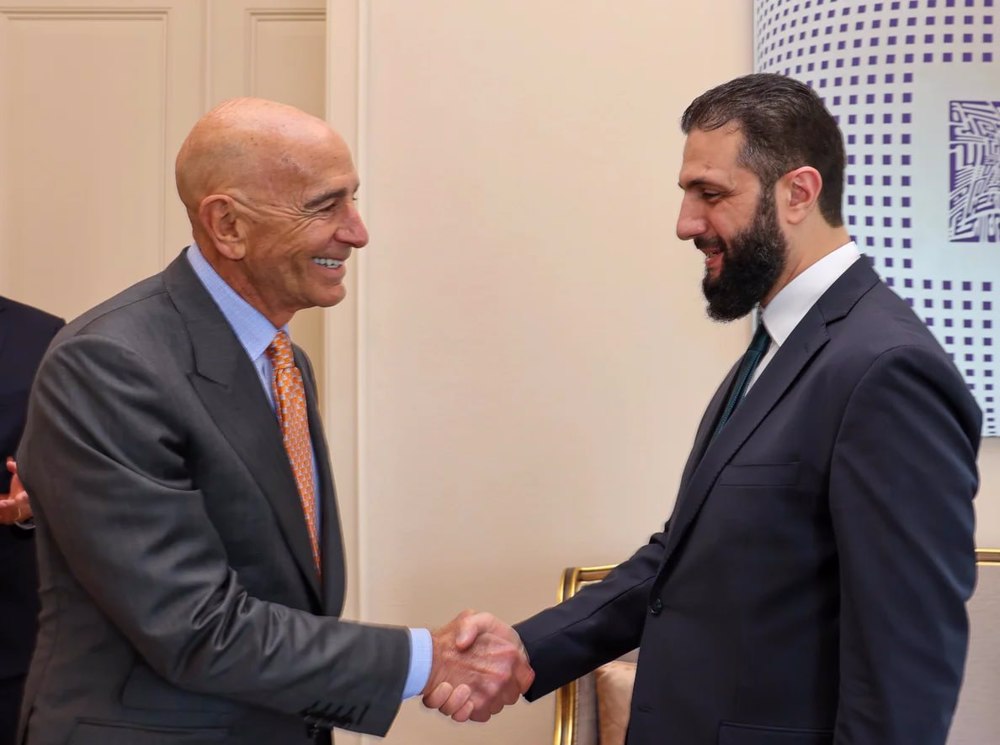Hay'at Tahrir al-Sham (HTS) has reportedly deployed foreign Takfiri fighters from northern Syria to the border with Lebanon, sparking renewed concern over the group’s destabilizing activities and growing presence in the region.
According to sources cited by The Cradle, foreign militants affiliated with HTS were transferred in recent days from the Harem area in Idlib province to the city of al-Qusayr, near the Syrian–Lebanese border.
The movement reportedly coincided with the transfer of heavy military equipment, including armored vehicles and other hardware.
“At the same time, forces affiliated with the Ministry of Defense of the ‘Syrian Transitional Government’ attempted to advance and take positions inside Lebanese territory, specifically in the Wadi al-Thalajat area of Ras al-Maara, along the Syrian–Lebanese border in the Damascus countryside,” the sources said, referring to barren areas where the Lebanese army is not present.
These reports emerge shortly after Washington announced Syria’s participation in the US occupying coalition in the Arab country, as Abu Mohammed al-Jolani — once affiliated with al-Qaeda and Daesh — arrived in Washington on Sunday.
The HTS military remains deeply infiltrated by extremist elements. Many of its current commanders and officers are known former members of al-Qaeda and Daesh factions.
Last month, Lebanon's Al Mayadeen TV cited diplomatic sources as saying that “unusual” movements of thousands of armed extremists, including fighters from Uzbekistanis, Chechens, and Uyghurs from China, were being observed along the Syrian–Lebanese border.
Tens of thousands of foreign fighters entered Syria illegally to join the US-backed war to topple former president Bashar al-Assad’s government, which began in 2011. The new authorities in Damascus have given some of these foreigners top positions in the army, and said they are considering giving them Syrian citizenship.
The reported buildup of HTS-linked forces near Lebanon coincides with renewed US threats that such militias could be deployed against Hezbollah.
On Friday, US envoy Tom Barrack said that the extremist-led regime in Damascus will “actively assist” Washington and Tel Aviv in confronting Hezbollah in Lebanon.
“Damascus will now actively assist us in confronting and dismantling the remnants of ISIS [Daesh], the IRGC [Iran's Islamic Revolution Guards Corsp], Hamas, Hezbollah, and other terrorist networks, and will stand as a committed partner in the global effort to secure peace,” the US envoy said.
 In this handout photo from the Turkish foreign ministry press office, Thomas Barrack (L) and Abu Muhammad al-Jolani meet in Istanbul, Turkey, on May 24, 2025.
In this handout photo from the Turkish foreign ministry press office, Thomas Barrack (L) and Abu Muhammad al-Jolani meet in Istanbul, Turkey, on May 24, 2025.
Barrack’s comments are the latest in a series of recent threats made by the Us envoy against Lebanon. He had said just last month that Lebanon would soon face a broad Israeli attack unless it moved to fully disarm Hezbollah immediately.
In July, he said Syria under HTS views Lebanon as its “beach resort” and would carry out an assault against the country unless Hezbollah disarmed.
Clashes broke out between the Lebanese army and HTS militants earlier this year, after Jolani's forces advanced against the border under the pretext of dealing with smuggling.
Analysts warn that the alignment of US policy with extremist-leaning Syrian factions such as HTS risks reigniting cross-border violence and undermining the security achieved by Hezbollah and the Lebanese Armed Forces after expelling Daesh and al-Qaeda elements from Lebanon’s eastern border in 2017.
Jolani told the Washington Post in an interview that “good” progress has been made in direct talks to reach an agreement with Israel, while boasting about weakening the Axis of Resistance on behalf of Tel Aviv.
“Israel has always claimed that it has concerns about Syria because it is afraid of the threats that the Iranian militias and Hezbollah represent. We are the ones who expelled those forces out of Syria,” he said.
“The US is with us in these negotiations, and so many international parties support our perspective in this regard. Today, we found that Mr. Trump supports our perspective as well, and he will push as quickly as possible in order to reach a solution for this,” he added.
Jolani also met with US-based Syrian rabbi Yosef Hamra.
Hebrew reports have revealed that a main part of the agreement will likely involve HTS–Israeli intelligence sharing and cooperation against the Axis of Resistance, specifically Iran and Hezbollah – which helped the former government recapture large swathes of Syria from al-Qaeda and Deash.
Israel carried out heavy strikes in Damascus and elsewhere in southern Syria earlier this year, under the pretext of protecting the Druze minority from Jolani's extremist forces.
Now, it continues to carry out incursions, seize territory, and expand the occupation it established after the fall of Assad’s government last year. Yet Jolani and other HTS officials have repeatedly signaled that they pose no threat to Tel Aviv.
Analysts are asking why al-Jolani does not deploy any forces against Israel, which continues to attack and occupy parts of Syria almost daily.
The HTS-led regime will reportedly hand over the occupied Golan Heights to Israel as part of a looming normalization deal with the illegal entity.
Since taking power, HTS has committed widespread war crimes and brutal repression, particularly against minority communities such as the Alawites, who have faced targeted violence, as Syria has experienced waves of sectarian and regional unrest under the group’s control.
Jolani was the former deputy to the late Daesh leader Abu Bakr al-Baghdadi, before becoming the head of the official al-Qaeda branch in Syria, the Nusra Front.
The Nusra Front was eventually rebranded into Hayat Tahrir al-Sham (HTS), which took control of Syria in December 2024.
There was confirmed coordination between Israel and the Nusra Front during the early years of the US-backed war on Syria that began in 2011.